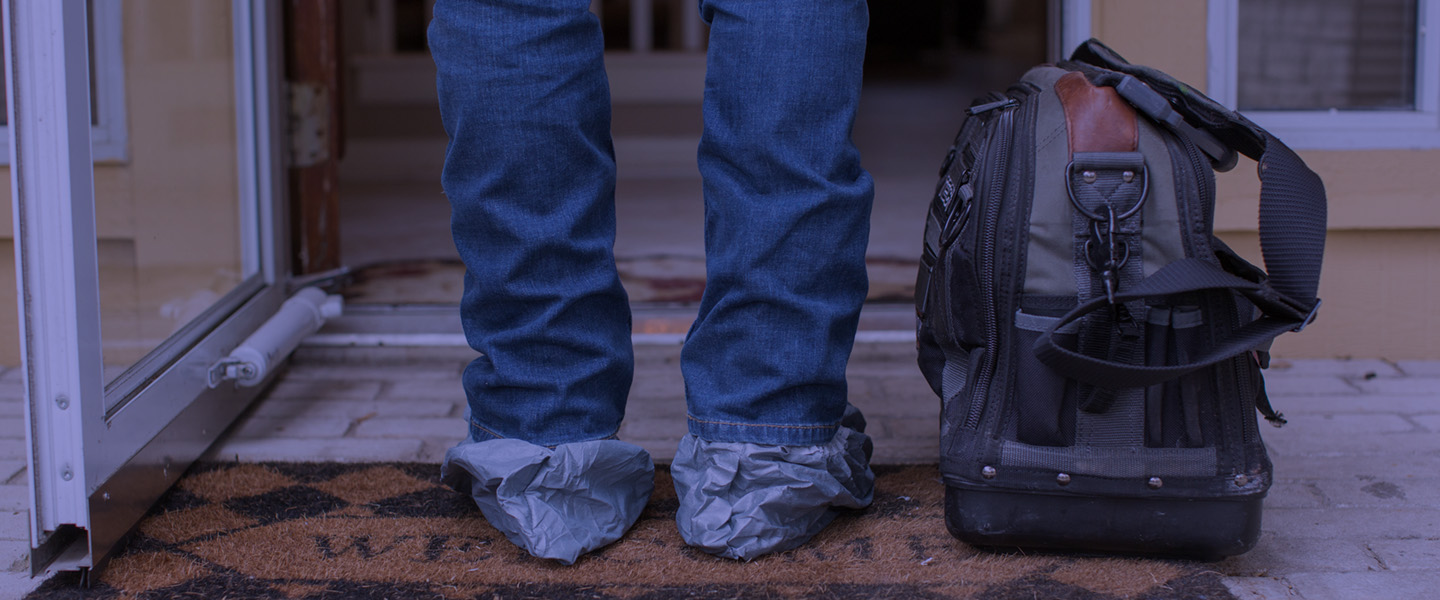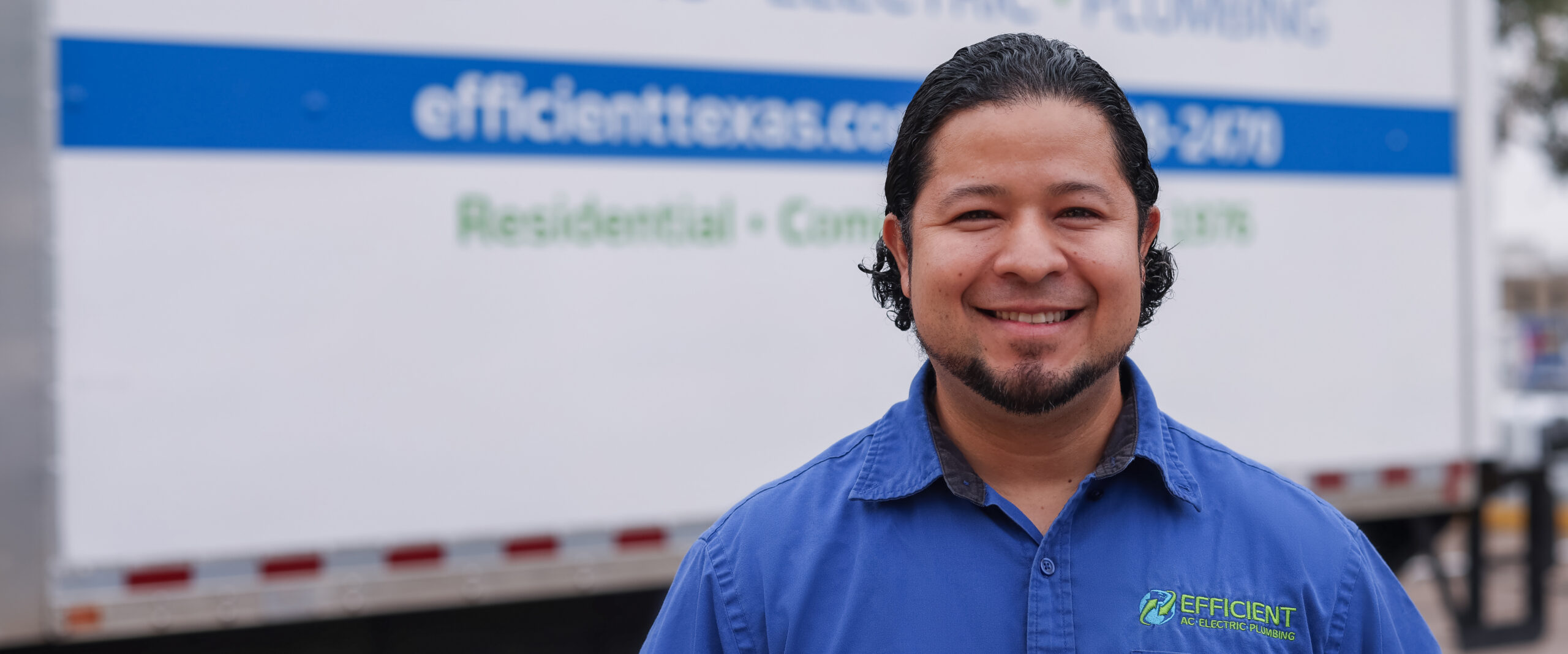0% for 36 Months or 10% off a New AC. Learn More >
Austin Heat Pump Replacement
Heat pumps are becoming more common as many newer homes do not have natural gas or propane for heating. A conventional heat pump for residential applications is similar to an air conditioner, except it will move heat from outside to inside during the heating season, using the same refrigerant circuit as it does in cooling mode. Conventional thinking is that there is no heat outside when the air is cold, but this is not true. Except at absolute zero (-467°F), there is heat in the air. Practically speaking, conventional heat pumps will work fairly well down to 30°F, at which point they need help from an auxiliary electric heat strip or other auxiliary heat device. Variable refrigerant systems such as Mitsubishi, Daikin and others will work as heat pumps to even lower temperatures.
Our Heat Pump Replacement Process
Our quotes are not one-size-fits-all and will include brands and solutions that make sense for your purpose, whether it be your residence, your rental or your business.
We quote a complete job upfront. To us, this means:
-
- We stand by our quotes and don’t attempt to add on items/charges later that should have been included initially.
- We include necessary ductwork to make proper connections without leaks, and we recommend full duct replacement when the old ductwork is in poor condition.
- We only reuse inaccessible in-wall items unless you request otherwise.
Estimates are free, and we allow for decision time. If possible, our service team will get your old system operational until you can make a decision, and we can complete the work.
We provide heater replacement services to the greater Austin and San Antonio areas, including but not limited to:
How Do I Know if I Need To Replace My Heat Pump?
The most significant factor that drives a heat pump replacement is a major component failure for an older unit (typically 10+ years). Heat pumps work their refrigeration cycle summer and winter – hence they are likely to need replacement earlier than AC/furnace units. For units older than 10 years, replacing a coil or compressor is not the best decision, as other large repairs are soon to follow. Much like putting a new engine in a 10+ year old vehicle, it is typically better to replace it with a new one with a warranty. Other signs include:
-
- Drop in performance
- Rise in electric usage
- Original use of builder-grade (i.e., cheap) equipment.
How Much Does a Heat Pump Replacement Cost?
Heat pumps are typically slightly more expensive than AC/furnace systems, but not significantly so. Replacement costs vary greatly based on brand, capacity, application, level of equipment, other work that needs to be done (e.g., ductwork), warranty and job difficulty.
Our advice: Make sure your contractor provides a quote for everything that is needed and practical to replace – and that they have a reputation for sticking to their quoted prices. Typically, in-wall items are not replaced, including line sets, drain lines and control wires. All machines, pans, switches, accessible insulation, filter racks and controllers should be replaced. In general, replacement costs vary from $7,000 to over $15,000 per unit, excluding extensive ductwork replacement.
What You Need to Know About Heat Pump Replacement
Heat pumps are generally easier to install than AC/furnace units. They do not require combustion air or venting unless they are a dual-fuel configuration.
-
- Dual fuel is essentially a heat pump system that uses a gas furnace instead of electric heat strips for emergency/backup heat. A traditional heat pump uses electric (strip) heat for heating when outside temperatures drop below about 25 degrees. At these temperatures, a heat pump can not operate properly due to the probability of the outdoor coils freezing and icing over. In this condition, backup (emergency) heat will be activated to keep the home warm. A dual fuel heat pump will also switch over to emergency heat, but in this case the emergency/backup heater is a gas furnace as opposed to electric heat strips.
In foam-insulated attics, heat pumps will not require air supplied for combustion or a flue, as both are penetrations. In most cases, heat pumps need a path for fresh air to be introduced into the air stream or space, but this is also true for AC/furnace units. They require no gas piping or source – again, unless they are a dual fuel setup.
Traditional residential heat pumps require auxiliary electric heat strips, also known as emergency heat. Depending on sizing, these can be between 5KW/30Amp to 15KW/80Amp circuits. With the larger units requiring 15KW strips, 80Amps is a significant draw to a home with the average 200Amp service. Two large heat pumps running in cold weather will consume most of the available power to the home. There are more exotic equipment choices that require no auxiliary electric heat strips, but these are limited in size, controls and performance. While they claim to run down to as low as 0°F, their performance drops off significantly – even for Texas climates.
Heat Pump Replacement: Key Takeaways
In closing, any heat pump should be installed by a licensed reputable dealer with experience. Codes, laws and manufacturer installation instructions must be followed.
At Efficient AC Electric & Plumbing, we stand behind our work with parts and labor warranties, and we take pride in having team members who are professional and trustworthy. We’ve been in Austin since 1976, so you can count on us to help maintain your system for years to come. Call us today at 512-501-2275, or simply fill out this form to schedule an estimate with a heat pump replacement specialist.

